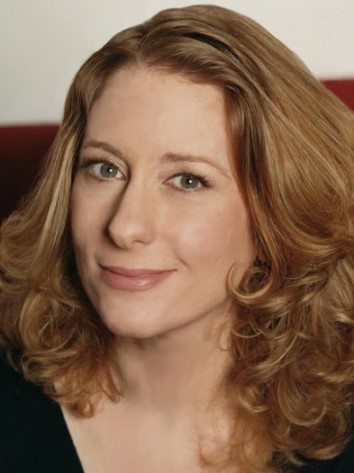During World War I, Serbia had the most casualties of any country as a percentage of the population; between 16.67% to 27.78%.1 This meant that subsequently there was a very real man shortage in Serbia. In the movie Tears for Sale by Uroš Stojanović,2 a group of women from a Serbian village leave in order to find husbands. After viewing the movie, a female professor with whom I am acquainted said that she found the topic abhorrent. Men are just not that important and penises are nothing to be obsessed about. When it was pointed out to her that what the women were doing was necessary for the survival of the village, the professor said that this was irrelevant and unimportant.

Uroš Stojanović (Урош Стоянович)
This seems to be an instance of ideology overriding the question of basic survival. The implication is that the death of humanity would be an acceptable alternative to women thinking that men are necessary. Of course, the end of humanity would include the end of women too. So the complete destruction of both sexes is preferable to the idea that the sexes need each other. Related ideas with the same consequences seem to be playing out in most Western countries and Japan.
Liberals in particular are either failing to have children or are having fewer than replacement numbers of them. One element in this lack of concern is our current cultural self-hatred (ethnomasochism) generated in part by elevating imaginary non-Western cultures above our own in order to use them to condemn the West. The West has oscillated between Western triumphalism and the myth of the noble savage for centuries and is currently ensnared in the latter element in the cycle. Cultural suicide does not matter if the culture is evil.
The huge number of movies with apocalyptic themes indicates some kind of awareness and obsession with civilizational destruction, but people are directed towards possible far off consequences while immediate and identifiable realities are ignored. Anthropogenic climate change and its hypothetical consequences is supposed to command our fear and attention, while the fact that many countries, such as Germany, Italy and Spain, all at total fertility rates of 1.4, Japan 1.42, Sweden and the U.K., 1.9 (2.1 is necessary for population maintenance) have below replacement birthrates that threaten economic disaster and cultural annihilation is simply not a topic that the media or liberal elites consider important.3
Another reason for the silence surrounding falling birth rates is the pull of ideology. Feminism has sought to liberate women from the drudgery of a home life devoted to raising children and to give women access to the workplace. The fact that many jobs outside the home are also onerous and that being a breadwinner is a weighty responsibility is downplayed.

Jonathan Berman
The problem is that someone has to look after children. Political correctness requires that differences between men and women be ignored or suppressed, but the truth is that more women are likely to choose to stay home to raise children than men. Most American women – and the same can presumably be said for women of the West generally – who choose to have children prefer to combine working part-time with childcare responsibilities. Some women are careerists determined to claw their way to the top. And some of those driven women have admitted that what they need is a man willing to play the role of a traditional wife. But some of those same women have said that they would be unwilling to date such a man for fear that the woman would be used as a meal ticket. This is a state of affairs that men have always had to stomach. Men know that their earning abilities make them attractive potential spouses and have sought reasonably well-earning occupations accordingly. It seems like the career woman’s willingness to reverse roles has its limits.
Being a breadwinner is burdensome and being a housewife is too. Being a breadwinner usually means kowtowing to a boss that an employee may not respect, doing a job that is far from what one would prefer to do, contravening one’s conscience at times and bearing the emotional strain of having people who depend on you. On the other hand, raising children is one of the most emotionally demanding of human activities. One’s very emotional closeness to a child means that the child affects a parent more strongly than any other person. Suburban life means that as a stay at home parent, a person can become socially isolated, trapped with only the company of the child for long stretches of time. This can make communal cave dwelling with parents interacting with other parents and children with children start to look strangely appealing.
The documentary Commune examines the attempt by free-love fanatics to live without romantic bonds.4 The goal was to abandon exclusive attachments and to pursue a hedonistic ideal. The attempt failed. Couples paired off eventually. The adults concluded that the experiment did not in fact make them happy. But it was the children who really suffered. Interviewees claimed that with their fathers being unknown, and with pleasure obsessed mothers, they felt about as important as the free range chickens running around the commune. They were angry and felt cheated by the total neglect they experienced.

Aldous Huxley (1894-1963)
Marriage has its drawbacks. But nearly every culture has arrived at the institution of marriage as the best alternative through a process of trial and error. In the case of anomalies, where having a mistress is tolerated or polygamy is embraced as an alternative family model, the rule has been that the man must be rich enough to provide for the mistress or multiple wives, so the dynamic of a breadwinner and a financially dependent woman is preserved.
The main beneficiaries of marriage are children. Marriage is not about fleeting pleasures. Marriage and children have traditionally been seen as a duty, limiting the choices of both sexes. Fortunately, raising children, while being difficult, is also meaningful. Flourishing offspring is profoundly satisfying. Even if things go wrong, to do everything in one’s power to achieve this goal still seems admirable and worthwhile.
In the past, children were the necessary byproduct of sex. But also, any alternatives to procreative sex between a married man and woman were rigorously suppressed. Prostitution, masturbation, homosexuality, pornography, contraception and other alternatives were suppressed and prohibited. The welfare and continued survival of the community depended on doing one’s duty and producing and caring for children.
Aldous Huxley’s Brave New World is a penetrating critique of liberalism, pointing in the direction that its logic indicates. In Huxley’s dystopia, hedonism rules and exclusive romantic relationships which foster genuine love, care and concern are contradictorily forbidden as selfish. The behavior of men and women on Tinder as described by Nancy Jo Sales in Vanity Fair approximates the rejection of romantic exclusivity and the suggestion propounded by characters in the novel that to reject sexual advances is selfish.5 It is one’s duty to make oneself sexually available for the happiness of others. Personal hedonism, it would seem, is promoted if each of us gives up some of our own preferences. The fact that personal hedonism is ultimately futile and pointless was pointed out by Plato and Aristotle a long time ago.

Nancy Jo Sales
The traditional duties of a husband and wife, father and mother, do involve self-sacrifice. But liberalism too pushes men and women to do things in the name of something larger than themselves. Unfortunately, in the case of liberalism, the larger cause is frequently incoherent. For instance, some women have been criticized by other women for being stay-at-home moms. The full-time female parent is seen as regressive and as not promoting the cause of women. In this case, the injunction to join the workforce at all costs involves suppressing one’s individual desires and happiness, just as much as tradition. This reveals that liberal feminists are not really concerned with individual happiness, but social engineering in the name of ideology.
Traditional imperatives to have children, on the other hand, involve the continued existence of men and women at all, which in the long term necessarily has to take precedence over ideology and politics. The notion that having children might be a duty is now commonly thought of as obsolete and anachronistic in modern Western democracies. Yet failing to have children is as surefire a method for cultural self-destruction as atom bombs, and we know that providing state of the art maternity leave in countries like Sweden has not meant a return to replacement level birthrates.
It may be that relatively fixed gender roles is in fact necessary for our survival. Some room could be made for particularly nurturing men and especially careerist women but they would need to be the exceptions to the rule. However, there is a good chance that notions of gender equality, or more exactly, gender sameness will continue to be promoted even if they have apocalyptic consequences. The near total silence and complete lack of alarm liberals display concerning falling birthrates indicates as much. The most one hears is that the elderly will become an economic drain and there will not be enough caregivers for them.

Christina Hoff Sommers
Other factors that contribute to the fertility crisis include couples of the young, urban professional variety, getting married at a later age than in the past and then attempting to have children in their mid-thirties. I have a nephew who when asked about marriage and children said that he would like a family “some day.” The fact that he is around thirty years old means that, unless he marries someone significantly younger than himself, “some day” better be “almost immediately.” The basic biological fact of rapidly declining fertility as women age is frequently ignored as careers are pursued.
Marriage rates are also declining with some increase in the number of couples living together. Presumably couples wish to keep their options open. This is all very well for them, but not for children. A contributing factor to falling marriage rates may be the difficulty many women claim to have finding a suitable husband, with economic factors playing a big role. The misandry of the feminist movement has meant that the relative under-achieving of boys and young men at school and university compared to women has not been addressed. Christina Hoff Sommer’s War Against Boys gives details concerning the attempt to raise girl’s self-esteem and test scores in the 1990s when girls were already outperforming boys in nearly every academic subject.6 Hoff Sommers outlines the consequences for boys of the exit of males from the teaching profession with women teachers having a harder time relating to male pupils’ interests and preferences.
 Parity of the sexes in male-dominated subjects, disciplines and jobs continues to be seen as important by feminists as a matter of principle, while areas where women predominate are not mentioned. So, for instance, 75% of psychology majors are women, with the figure being only 28% in philosophy.7 There is no discussion of the imbalance in psychology, but the numbers in philosophy are seen as rampant sexism. The feminist ideal would seem to be 50/50 in areas currently dominated by men and any number over 50% in areas dominated by women being absolutely fine, which would entail parity or dominance of women in every arena. The dictates of social engineering and ideology mean that individual preferences are seen as irrelevant in this area in order to achieve ideological goals, whereas the suggestion that men and women need to make different choices if Western culture is to survive at all is regarded as retrograde or simply not considered at all.
Parity of the sexes in male-dominated subjects, disciplines and jobs continues to be seen as important by feminists as a matter of principle, while areas where women predominate are not mentioned. So, for instance, 75% of psychology majors are women, with the figure being only 28% in philosophy.7 There is no discussion of the imbalance in psychology, but the numbers in philosophy are seen as rampant sexism. The feminist ideal would seem to be 50/50 in areas currently dominated by men and any number over 50% in areas dominated by women being absolutely fine, which would entail parity or dominance of women in every arena. The dictates of social engineering and ideology mean that individual preferences are seen as irrelevant in this area in order to achieve ideological goals, whereas the suggestion that men and women need to make different choices if Western culture is to survive at all is regarded as retrograde or simply not considered at all.
Immigration is sometimes mentioned as a partial remedy for declining fertility rates. However, mass immigration, particularly of non-Westerners, means that cultural death is hastened, not forestalled. If cultural murder is immoral, as can occur in colonialism, then cultural suicide is also wrong.
The insouciance with which below replacement level fertility rates is regarded indicates a core sickness in Western culture. Science and neo-Darwinism, liberals’ replacement for Christianity in the West, are silent about meaning and value. John the Savage in Brave New World hangs himself when he realizes that in a world that has obliterated meaning, he cannot find a manner of living that is not pointless. Hollywood churns out one end-of-the-world film after another. The dearth of children and our attitude to this fact is of a piece with a world that seems to do everything it can to point one in the direction of nihilism.

Adj. Prof. Richard Cocks teaches philosophy at SUNY Oswego. Originally from Christchurch, New Zealand, he is presently based in the United States. Dr. Cocks is an editor and regular contributor at the Orthosphere and has been published at The Brussels Journal, People of Shambhala, The John William Pope Center for Higher Educational Policy and will have a book review of Conversations with Roger Scruton at The University Bookman later this year.
Endnotes:
- For more information about the Serbian victims of the First World War, compare: Liebman Hersch, “La Mortalité Causée par la Guerre Mondiale” METRON: International Journal of Statistics Vol. 7 No. 1 (1927) p. 65-76 and Frédéric Le Moal, La Serbie du Martyre à la Victoire 1914–1918 (Éditions SOTECA 14-18, 2008) p. 231.
- “Чарлстон за Огњенку” or “Čarlston za Ognjenku” [“Tears for Sale”] (Director: Uroš Stojanović; Principle Writer: Aleksandar Radivojević; Released by EuropaCorp: 30 January 2008).
- Lee Kuan Yew, “Warning Bell for Developed Countries: Declining Birth Rates” Forbes (online) (25 April 2012 @ 6:00PM) (accessed 14 August 2016).
- “Commune” (Director and Writer: Jonathan Berman; Released independently at the San Francisco Jewish Film Festival: 26 June 2005).
- Nancy Jo Sales, “Tinder and the Dawn of the Dating Apocalypse” Vanity Fair (online) (6 August 2015 @ 10:30AM) (accessed 20 August 2016).
- Christina Hoff Sommers, War Against Boys – How Misguided Policies are Harming our Young Men (Simon & Schuster; Reissue edition, 1 September 2015).
- Christina Hoff Sommers, “Does Philosophy Have a Woman Problem” The American Enterprise Institute (online) (26 July 2016) (accessed 20 August 2016).





Leave a comment